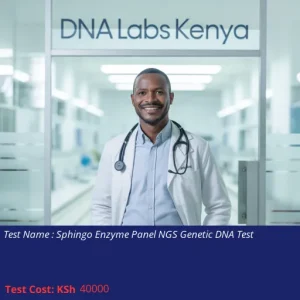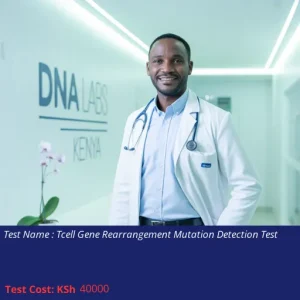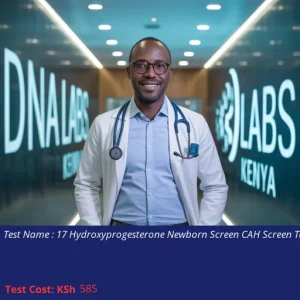HMGCL Gene 3-Hydroxy-3-Methylglutaryl-CoA Lyase Deficiency NGS Genetic DNA Test
Introduction
The HMGCL Gene 3-Hydroxy-3-Methylglutaryl-CoA Lyase Deficiency NGS Genetic DNA Test is a vital diagnostic tool that enables healthcare providers to identify genetic mutations associated with metabolic disorders. This test is particularly important for patients who exhibit symptoms of metabolic dysfunction or have a family history of related conditions. Utilizing next-generation sequencing (NGS) technology, this test provides accurate insights into the genetic basis of the disorder, facilitating timely intervention and management.
What the Test Measures
This test specifically measures mutations in the HMGCL gene, which is crucial for the metabolism of certain amino acids and fatty acids. By identifying these mutations, healthcare providers can better understand the underlying causes of metabolic disorders, leading to more effective treatment strategies.
Who Should Consider This Test
Individuals who may benefit from the HMGCL Gene test include:
- Patients exhibiting symptoms of metabolic disorders, such as hypoglycemia, developmental delays, or neurological issues.
- Individuals with a known family history of 3-Hydroxy-3-Methylglutaryl-CoA Lyase deficiency.
- Patients undergoing genetic counseling for familial metabolic disorders.
Benefits of Taking the Test
Taking the HMGCL Gene test offers numerous benefits, including:
- Accurate diagnosis of metabolic disorders, leading to appropriate treatment plans.
- Enhanced understanding of genetic risks for family members.
- Guidance for dietary and lifestyle modifications to manage symptoms.
- Access to specialized care and resources for affected individuals.
Understanding Your Results
Results from the HMGCL Gene test will be interpreted by qualified geneticists. A positive result may indicate the presence of a genetic mutation leading to metabolic disorders, while a negative result suggests no mutations were detected. It is essential to discuss results with your healthcare provider to understand the implications and next steps.
Test Pricing
| Test Name | Discount Price | Regular Price |
|---|---|---|
| HMGCL Gene 3-Hydroxy-3-Methylglutaryl-CoA Lyase Deficiency NGS Genetic DNA Test | 40,000 KSh | 56,000 KSh |
Branches and Booking
We have branches across all major cities in Kenya, making it easy for you to access our testing services. Additionally, we offer home sample collection services for your convenience. To book the HMGCL Gene 3-Hydroxy-3-Methylglutaryl-CoA Lyase Deficiency NGS Genetic DNA Test, please call or WhatsApp us at +254746286171.
Turnaround time for results is approximately 3 to 4 weeks, and the sample type required can be blood, extracted DNA, or one drop of blood on an FTA card. Prior to testing, a clinical history and genetic counseling session are recommended to draw a pedigree chart of affected family members.







